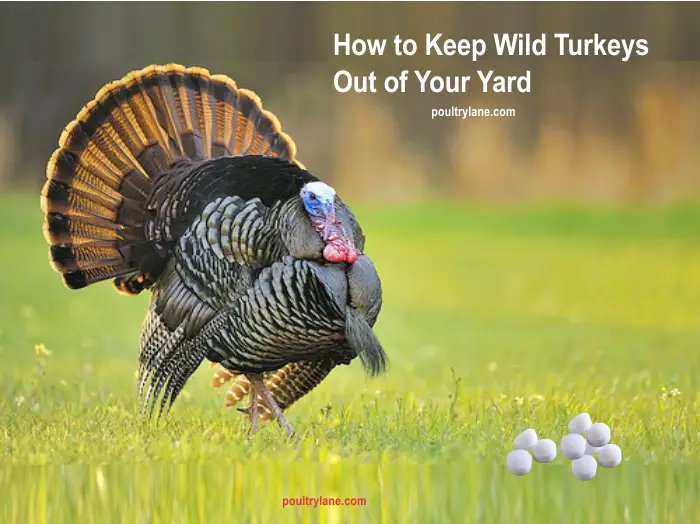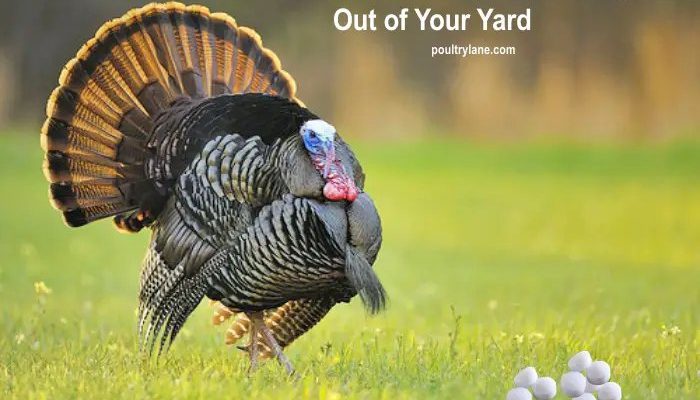
Think of turkeys as your kids at a playground—full of energy, curiosity, and a bit vulnerable. You wouldn’t let your kids roam freely without supervision, would you? Similarly, securing your turkeys doesn’t have to be complicated, but it does require some planning and attention. Let’s walk through the various strategies you can use to protect your turkeys from predators.
Before we get into the nitty-gritty of protection, let’s talk about who exactly you’re guarding your turkeys against. Various predators can threaten your flock, and understanding them is the first step in ensuring their safety.
- Birds of Prey: Hawks and eagles can swoop down to snatch a turkey, especially younger or smaller ones.
- Mammals: Foxes, raccoons, and weasels are often on the lookout for an easy meal and can be quite crafty.
- Reptiles: In some areas, snakes might target turkey eggs or even young chicks.
You might be wondering, “How can I spot these predators?” Keep an eye out for unusual behavior in your turkeys, like excessive squawking or hiding. Turkeys are pretty good at signaling when something’s off, so trust their instincts.
One of the best defenses against predators is to create a safe space for your turkeys. Think of this as building a fortress just for them—one that’s high, sturdy, and well-guarded.
Start by building a strong, secure pen. Use materials like chain-link fencing or sturdy wood. Make sure the fence extends at least 6 feet high, as many predators can easily jump or climb. If your turkeys are free-ranging, consider adding a roof to your enclosure—this can protect them from birds of prey overhead.
Also, check the ground. Make sure there are no gaps where a sneaky raccoon could slip through. Adding a layer of wire or rocks at the bottom of the fence can deter digging predators. Remember, safety is key, and creating a robust enclosure is the foundation of keeping your turkeys safe.
Turkeys love to roost at night, but they can be sitting ducks—literally—if they don’t have a safe place to sleep. It’s vital to provide a secure roosting area away from potential threats.
Install roosting bars high enough off the ground. Think about it: just like kids climbing to a treehouse, the higher they are, the safer they feel. Make sure their roost is in a well-lit area. Predators generally prefer to hunt in darkness, so brightening their nighttime space can help deter them.
You can also use a mobile coop that you can move around your yard. This keeps the turkeys safe while offering them fresh ground to explore, making them less predictable to keen-eyed predators.
Did you know that some animals can help protect your turkeys? Just like how a good dog can watch over a group of kids, there are various guard animals that can stand by your flock.
Here are a few options:
- Dogs: Breeds like Livestock Guardian Dogs (LGDs) are specifically trained to protect farm animals. They’re gentle with livestock and fierce against predators.
- Geese: Surprisingly, geese are excellent watchdogs! They’re loud and aggressive, which can scare off predators.
- Cats: A few farm cats can keep rodents at bay, which can help protect your turkey eggs.
You might be thinking, “Will these animals get along with my turkeys?” They usually do, but observe their interactions closely. A good relationship means a happy, safer farm.
Creating a Safe Outdoor Space
If you want your turkeys to enjoy the outdoors, it’s crucial to set up a safe space where they can roam freely without constant worry. Start by choosing an area that’s enclosed and monitored regularly.
You could use fencing to outline this space, but also consider planting thick bushes or shrubs that can provide cover. These natural barriers can deter predators and give your turkeys a place to hide if they feel threatened.
Also, avoid leaving food out overnight. Predators are often attracted to easy meals. Keep feeding times during the day and clear away any leftovers to minimize this risk.
Maintaining Awareness
Being vigilant is one of the best things you can do for your turkeys. Regularly check on them and look for signs of distress or unusual behavior. Sometimes, the first clue that something’s wrong is a little less noise in the yard.
Get to know the local wildlife and keep an eye on predator activity in your area. Collaborate with your neighbors to share insights and tips. After all, a bird in your hand is worth two in the bush—but keeping an eye on all the bushes can help keep your turkeys safe.
Here’s the thing: while you can’t completely eliminate threats, being aware and proactive can significantly reduce the risks.
The Importance of Regular Health Checks
Keeping your turkeys healthy is another piece of the puzzle. Healthy birds are more alert and better equipped to fend off stress or threats. Schedule regular health checks and vaccinations with a vet to ensure they’re in top shape.
Incorporate routines that allow your turkeys to get exercise, forage, and socialize. A well-cared-for turkey is a happy turkey, which means they’ll be less likely to fall victim to predators due to stress.
In conclusion, protecting your turkeys from predators is all about creating a secure environment, using the right strategies, and staying vigilant. Just like you’d keep an eye on your loved ones, giving your turkeys the protection they need is part of being a responsible owner. With these tips in your toolbox, you can enjoy watching your flock thrive while they stay safe from predators.

